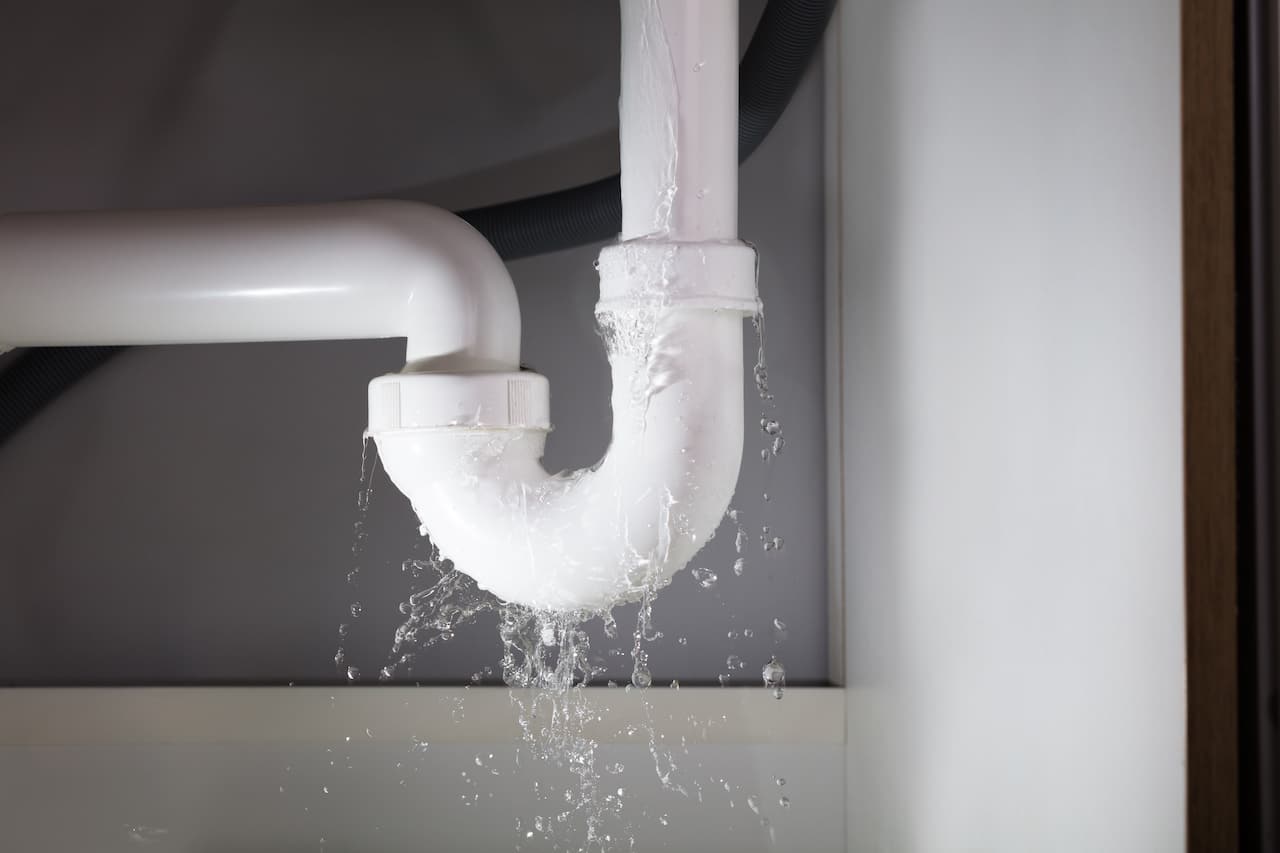Plumbing, like any other field, has some risks attached to it. If you run an experienced, competent plumbing business, you may not be too worried about damages resulting from your work. But equipment malfunctions and other accidents aren’t generally foreseeable, and without taking proper protective measures, including getting plumbers’ liability insurance, you could be leaving your business open to liability for significant damages.
One of the most common risks for plumbers is liability that results from water damage to homes or buildings during the execution of work contracts. Other significant costs could also occur in a plumbing job due to property theft, damage to cars, and even potential injuries to workers.
Thankfully, there is insurance coverage for both plumbers and homeowners who want to protect themselves against the risks of water damage.
Water Damage: Who Is Liable?
Water damage constitutes the main source of homeowner insurance claims. The Insurance Information Institute has listed water damage as the third most prevalent cause of all home insurance claims between 2012 and 2016. Each water damage claim led to losses averaging $9000, and about one out of 50 homes with insurance coverage has filed for property damage claims as a result of water damage or freezing.
Considering those numbers, water damage is one area of coverage you should undoubtedly be aware of. But the question still stands: If water damage occurs in a home, are you held liable, or is the homeowner responsible?
The answer depends on the circumstances.
Cases When Your Plumbing Business Is Liable
A plumbing business could be liable for water damages in cases where:
- You cause an accident in a customer’s home that causes water damage, even if it is unrelated to the specific work you are doing.
- Equipment isn’t installed properly or a job is completed with poor workmanship which results in water damage.
If you are found responsible for the damages, you can also be held liable for costs associated with the damage or accident, such as the cost of the customer’s stay at a hotel while damage is repaired, legal fees, etc.
Common situations where plumbers are accountable for damages include fitting a tap which leaks and causes damage to wooden cupboards underneath, inadequately reconnecting pipes, which then leads to leaks, and even dropping tools in a bath and causing it to crack.
Situations Where You Cannot Be Held Liable
However, you generally cannot be held liable if water damage is the result of any of the following situations:
- The homeowner has used the malfunctioning equipment improperly or in a way it wasn’t made to be used.
- You installed the plumbing initially, but it has since malfunctioned due to normal wear and tear or lack of maintenance on the owner’s part.
- Pipes you installed correctly burst due to freezing. (This should normally be covered by the homeowner’s insurance.)
- There was a manufacturer error with the equipment you installed, leading it to malfunction. (In this case, as long as you were unaware of the error when the equipment was installed, the manufacturer should usually be liable.)
Even with these basic guidelines to recognize, there are always unique circumstances that affect a water damage claim. No matter how certain you are that you won’t make a mistake (or how lucky you’ve been in the past), there’s no guarantee that disaster won’t strike in the future.
Basic Types of Coverage That Plumbers Need
General liability insurance should protect you against claims for water damage or other property damage, third-party injuries, etc. But there are some other types of coverage to protect your business, as well. Here are some basic types of coverage plumbers need:
1. Liability Insurance
Liability insurance protects you when your actions lead to damage to properties or personal injuries to third parties. So, as noted above, general liability insurance will protect you in cases where you are found liable for water damage or where a customer is injured due to your work (for example, if they slip and fall because of water resulting from the plumbing job you’re completing, etc.).
As you work jobs involving larger or more expensive properties and equipment, you’ll likely want to increase the total costs your insurance will cover. Some large commercial jobs may even require that you have a minimum amount of coverage before beginning work.
2. General Property Insurance
Since plumbers are frequent travelers who often have to carry their tools along with them, there is a possibility that their equipment can be stolen. When this happens, it creates a lot of inconveniences and extra expenses.
General property insurance can cover the loss or damage to plumbing equipment and other commercial assets.
3. Commercial Auto Insurance
In addition to property insurance, commercial auto insurance is another essential coverage for contractors such as plumbers who are required to travel to work sites. This coverage is similar to personal auto insurance, but it provides protection for company vehicles.
If employees consistently use personal vehicles for work travel, you should also get commercial auto insurance for those vehicles. Even if they are already covered by personal auto insurance, that coverage will not be applicable if they are in an accident when traveling for work, and your business will be held accountable.
4. Accident and Illness Insurance
Self-employed plumbers can make a good living. But one disadvantage is that when you fall ill or sustain a serious injury from an accident, your source of income disappears. A business income insurance policy for an accident or illness can cover you in the event of such unfortunate circumstances.
This means you will be paid a fraction of your monthly income during the period of illness. With this arrangement, a plumber will be able to settle their bills and maintain their standard of living.
Depending on the size of your plumbing company, the number of employees, the types of jobs you complete, and a number of other factors, you may need additional types of specific plumbers’ insurance coverage.




